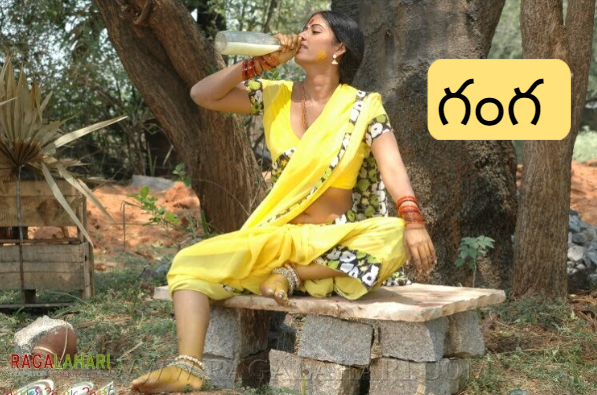Though cinema is basically a medium for entertainment, it also had its impact on the people in general and youth in particular. While some make the film with profit motto and make them exclusively with commercial values, some people try to give a message to the people through cinema. Some others make the film with commitment to highlight the problems faced by the people. ‘Ganga’ is one such film produced and directed by Shekhar Yalamanchi to highlight the social evil called ‘jogini system’.
There is a village in Telangana region, where some girls used to be sacrificed by some families. The village elders convert them into ‘joginis’. According to the system, joginis will be married to the God while they are in a very tender age. After they attain puberty, they will be kept in ‘Rangam’ first, and the village elders will share bed with her. Later, every male in that village are free to use them to quench their lust.
Katamayya Patel (Jayaprakash Reddy) is a landlord and whatever he says is a rule in that village. He used to enjoy these joginis forever once they attain puberty. Ganga (Priyanka) is the daughter of Ranganna (Chandramohan). Patel arranges a second marriage to him and forces him to turn Ganga a jogini. Unable to contest, Ranganna gives off Ganga to Devakka and leaves the village. Ganga worries about her future as she knows that jogini is the combined property of the villagers.
Shankar (Venugopal) visits the village claiming that he was doing a research on jogini system. He stays with Devakka (Tara) and calls a jogini called Rangasani (Eswari Rao) as mom, which nears him to her. Shankar comes to know how a girl turns a jogini and the kind of suffering she faces. He decides to eradicate the system. In the process, he meets Narsanna (Ranganath), another landlord in the village, who is a gentleman.
When Narsanna revolts against Patel, the latter demands him to return the money which he owed to him. Shankar comes to his rescue and pays off the entire loan amount. However, Narsanna’s son Suryam (Ajay) eyes Ganga. But by that time Shankar and Ganga fall in love with each other. In order to snatch Ganga and turn her into a jogini, Suryam challenges the villagers to win her in ‘Utla Pandaga’ during Krishnashtami and in place of the ‘Utti’, there will be Ganga and whoever touches her first could take her. But Suryam puts a condition that only people from that village are allowed to participate in the contest. On the D-day, it was revealed that Shankar is none other than the son of Rajeswar alias Rajanna (Suman), younger brother of Devakka. The film ends on a happy note with Shankar wins hands down as Suryam realizes all his follies.
Director Shekhar drove his point straight without any hassles and embarrassment. Each and every scene in the film was quite accurate and specific. Though the film is not too great, the director was able to explain what he wanted to tell the people. Andesri, who generally writes lyrics for revolutionary films penned excellent songs for ‘Ganga’. The audiences could visualize the scene even if they close their eyes and listens to the lyric. The literature in the songs is very good, though they were written in Telangana slang. Likewise, he also assisted the director cum producer Shekhar to pen dialogues for the film. All the dialogues are good and make the audience to recollect them even after leaving the theatre. Especially, dialogues written for the character Rangasani are cent per cent appropriate and moving. When it comes to performance, all the lead characters including Tara, Eswari Rao, Delhi Rajeswari, Sivaparvathi, Jayaprakash Reddy, Ranganath were etched well and they lived in their respective roles. In fact, Eswari Rao dominated the hero in the film, when it comes to acting. Comedy by Duvvasi Mohan and Babumohan is adequate. Music by Koti is also excellent and th
